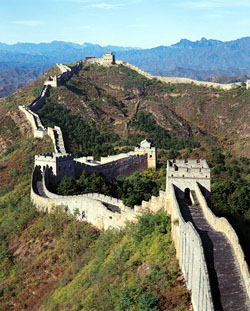Dec 28, 2025
Dec 28, 2025
 In South Asia other than the United States the next most prominent external intrusive strategic presence is that of China. China entered the strategic calculus of South Asia in 1950 when soon after establishing itself in power the Chinese Communist regime mounted a military campaign for the military occupation of the 'Hermit Kingdom ' of Tibet. In a swift military campaign the defenseless spiritual kingdom of Tibet lay prostrate under Chinese military boots. China's borders now stood extended to the Himalayan mountain chain which so far provided an impregnable barrier to any military intrusiveness from the North into India. The 'buffer state' of Tibet so assiduously nurtured by the British during their rule of India stood demolished.
In South Asia other than the United States the next most prominent external intrusive strategic presence is that of China. China entered the strategic calculus of South Asia in 1950 when soon after establishing itself in power the Chinese Communist regime mounted a military campaign for the military occupation of the 'Hermit Kingdom ' of Tibet. In a swift military campaign the defenseless spiritual kingdom of Tibet lay prostrate under Chinese military boots. China's borders now stood extended to the Himalayan mountain chain which so far provided an impregnable barrier to any military intrusiveness from the North into India. The 'buffer state' of Tibet so assiduously nurtured by the British during their rule of India stood demolished.
India as the largest successor state of British India after 1947 should have strategically reacted to this Chinese military move as it posed and was to pose grave strategic implications for India's national security. Regrettably, India under the stewardship of its most celebrated and longest serving Prime Minister Jawahar Lal Nehru did not react and accepted the military occupation of Tibet by China. It was a grave strategic error which India regrets till today and will continue to do so in the future. It was Nehru's strategic naivety arising from a total absence of a strategic culture in India's emerging political leadership. It plagues India today too as evident from the appeasement postures adopted by the present Indian Government towards the Pakistani military dictator, General Musharraf. In pursuit of peace, India is ready to compromise its national security interests and its 'national honor'.
China's intrusive strategic presence in South Asia post-1950 and the course it took thereafter, its confrontation with India and the ultimate Sino-Indian War of 1962, is now a part of contemporary history and does not need repetition. So also, the long freeze in relations between the two countries that followed till the better part of the 1970's. China began according a modicum of grudging respect for India only after India's nuclear weapons test in 1998 after a year of rabid hostility of the tests.
In India people and Governments tend to have short memories of the wrongs inflicted against them by other countries. So are the Indian attitudes towards China. The stupendous rise in trade relations between China and India in the last five years or so have made India and Indians oblivious to the true state of China's strategic intrusiveness in South Asia directed against India.
In parallel to the sustained efforts by China to express its renewed friendship with India, China has all along been busy in a strategic encirclement of India. China has a strategic alliance with Pakistan. This has incorporated supply of nuclear weapons blueprints and long range missiles and equipping the Pakistani armed forces with advanced Chinese weaponry. It has supported politically and strategically Pakistan's confrontationist postures against India. In relation to Bangladesh, it is once again China which has in place a Mutual Defence Cooperation Agreement with Bangladesh like the one they have with Pakistan. The advent of the Maoist insurgents on Nepal's political stage and a possible emergence of a Communist regime in Nepal have not been possible without subtle Chinese initiatives.
China's strategic encirclement of India has been an ongoing process all along ever since 1962 especially. Such a strategic encirclement of India by China cannot be termed as benign in terms of intentions. It must also be remembered that China's political relationships with the countries of South Asia, which pale into insignificance because of their asymmetries with India, in terms of size and resources has strategic objectives. It is China which keeps on attempting to bolster an unnatural balance of power in South Asia by inducing in these countries a belief that they carry China's political and strategic support.
So while India should keep pursuing all possible options to have good relations with China, it should not lose sight of the central perspective of China's role in South Asia ' it is not a benign strategic presence from the point of view of India's national security interests. India too needs to match China's balance of power games in South Asia with matching balance of power games at the global level and in East Asia.
10-Sep-2006
More by : Dr. Subhash Kapila